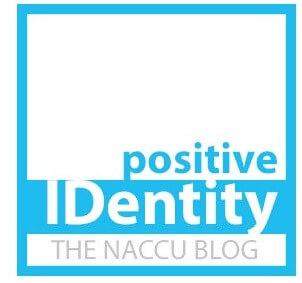Inside UT Tyler’s One-Person Card Office Success Story
 Inside UT Tyler’s One-Person Card Office Success Story
Inside UT Tyler’s One-Person Card Office Success Story
What does it take to run a successful campus card program at a growing university when you are the only person behind the scenes? At the University of Texas at Tyler, Brista Hurst-Kent, Manager of Business Technology Services at UT Tyler, is showing that innovation, collaboration, and determination can drive big results, even from a small card office.
During a recent NACCU NetworX event for One-Person Card Offices, Brista recently shared how the university’s campus card program has transformed over the past 12 years. It has grown from basic ID printing to a fully integrated mobile credential solution that supports access, dining, and student life across the institution.
Watch now:
A Modern Campus Card Strategy in East Texas

UT Tyler is nestled in the piney woods of East Texas, serving more than 10,500 students across multiple campuses. With over 1,700 students living in university housing, the need for a connected and secure credential program is essential. The P2 Card is now central to building access, identity verification, meal plan use, and event attendance.
The university launched mobile credentials in 2021, and 68 percent of students have adopted them in the 2024 to 2025 academic year. This shift was made possible by key infrastructure upgrades, including WiFi-enabled locks in residence halls and NFC-capable readers across campus.
From Physical Cards to Mobile Credentials
UT Tyler began issuing ID cards in 2002 using Blackboard Transact. Over time, the program steadily added new technologies, including contactless access, campus cash, and mobile ordering.
In 2010, the move to contactless credentials helped lay the groundwork for future upgrades. By 2021, UT Tyler was ready to go live with mobile credentials, allowing students to add their ID to Apple Wallet, Google Wallet or Samsung Wallet for tap-and-go convenience.
Adoption has grown steadily since then. Students have responded positively to the flexibility and convenience, with many provisioning their credentials immediately after learning about the option.
Campus Card Integration Across Operations
The P2 Card is deeply embedded in campus operations, connecting systems and services across departments. It integrates with:
- PeopleSoft Campus Solutions for student data feeds
- Transact Campus for credential management and stored value
- Sodexo for dining
- Follett for bookstore transactions
- InnoSoft Fusion for recreation access
- Engage for event tracking
- Cloud POS systems and mobile ordering at locations including Chick-fil-A, Einstein Bros, and soon Subway
This connected approach ensures that the campus card program supports everything from housing and dining to student engagement and campus safety.
Strengthening Student Identity and Belonging
Brista sees the ID card as more than just a credential. It is a symbol of belonging.
“The moment a student receives their university ID is when their connection to the school becomes more solid,” she said.
At UT Tyler, students use their P2 Card to unlock doors, access meal plans, attend events, and print class materials. Every use strengthens their connection to campus and helps create a sense of identity and community.
Custom Designs to Reflect Campus Pride
The card program also includes custom badge designs for different populations. Nursing students receive professional preprinted badges that reflect the prestige of the university’s flagship program. Summer camp participants use vibrant, branded cards featuring popular campus imagery.
Identifying Strengths and Setting New Goals
Through a recent self-assessment, Brista identified what is working well and where there are opportunities to improve. The program benefits from strong leadership, interdepartmental partnerships, and ethical operations. But it lacks a formal mission statement, dedicated space, and sufficient technical support.
Despite these challenges, the vision is clear. Brista hopes to create a more defined identity for the card program, expand staff support, and continue increasing student adoption of mobile credentials and self-service tools.
Why UT Tyler’s Story Matters
Even with limited staffing, UT Tyler has built a forward-looking credentialing program that serves the entire campus. From access control and dining to mobile provisioning and digital ordering, the P2 Card supports both daily operations and long-term student success.
This story shows what is possible when one passionate professional leads with purpose. It is a model of adaptability, innovation, and the power of connection in the campus card industry.
Frequently Asked Questions:
Q: Is it possible to run a full campus card program with only one staff member?
A: Yes. At the University of Texas at Tyler, the campus card program is managed primarily by one staff member who oversees all aspects of credentialing, integrations, and student support. Despite limited staffing, the program supports mobile credentials, access control, meal plans, bookstore transactions, event tracking, and more. Strong institutional collaboration and centralized services have made it possible to maintain and grow the program with limited personnel.
Q: How can a one-person card office successfully launch a mobile credential program?
UT Tyler launched its mobile credential program in 2021 under the leadership of a single staff member. The key to success was leveraging existing infrastructure, such as NFC-enabled readers and WiFi-connected locks, and building strong partnerships across departments like housing, IT, dining, and student services. Support from leadership and clear communication with students helped drive adoption, and two-thirds of newly issued credentials are mobile as of this year
Q: What are the benefits of implementing a mobile credential at a university?
Implementing a mobile credential program enhances convenience, security, and sustainability for both students and staff. At UT Tyler, students use their mobile ID for building access, dining, printing, event check-ins, and more. The transition to mobile reduced reliance on plastic cards, streamlined support through self-service provisioning, and boosted transaction volume, such as a 36 percent increase in dining transactions after mobile ordering was introduced. The program also improved the student experience by making campus interactions more seamless and connected.
Do more as a one-person card office!
Joining NACCU connects you with a supportive community of campus identification professionals, including many who run one-person card offices just like you. Through member forums, webinars, an annual conference, and shared resources like The Vault, you can learn how others navigate limited staffing, launch mobile credentials, and build cross-campus partnerships. NACCU helps you find solutions faster, share your successes, and feel less alone in the challenges of managing a card program solo.
Become a NACCU member today and gain access to the expertise, resources, and support that help one-person card offices turn big ideas into practical, campus-wide solutions.
